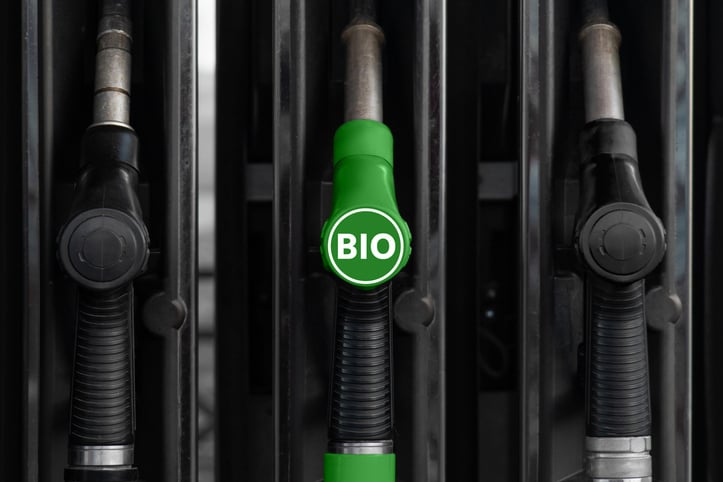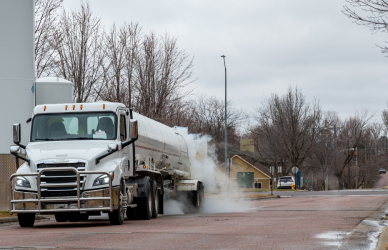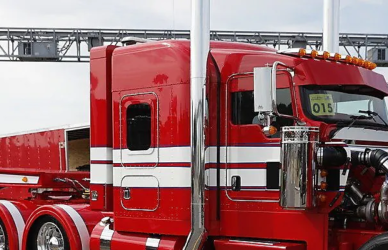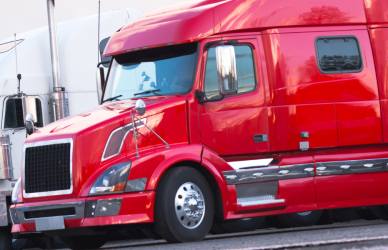Penske Truck Leasing is embracing the future of transport, having signed an agreement with Shell to fuel all 32 California locations with renewable diesel. The move has already resulted in impressive performance gains and cost savings due to lower maintenance costs and reduced emissions – undeniable benefits that Penske can’t wait to bring nationwide.
Penske’s transition to biofuels is saving on maintenance costs due to its cleaner burn, reported Josh Tippin, the company’s VP of Energy and Fuel Supply. This clean energy source has brought various benefits for Penske as well as helping support a more sustainable future.
While Tippin was unable to provide an exact cost savings number since Penske’s trucks fuel out on the road outside of California where renewable diesel isn’t largely available, he did say that, “we agree with the majority of the studies that are showing around a two cent per mile maintenance when compared to traditional diesel.”
Tippin said the fuel’s cleaner burn has reduced diesel particulate filter maintenance and is “causing a reduction in that maintenance cost.”
In addition, higher cetane values also deliver greater power. For reference, the Department of energy reports levels of 70 or higher with renewable diesel versus 45-55 with traditional diesel.
“Absolutely,” Tippin said. “Renewable diesel’s anywhere from 10, 20, to 30 cetane number higher than traditional diesel, depending on where you’re getting it from, and that automatically is going to improve your ignition, your power off the start. Anytime you have that big, big boost — and those are pretty large percentage gains — you’re going to have a much better power output.”
Penske Truck Leasing is hailing renewable diesel as a major hit with fleets, citing its increased power and lack of aromatics. The company is continuing to collaborate with Original Equipment Manufacturers (OEMs) to ascertain the fuel economy effects – so far they are impressed.
“With traditional diesel you will see degradation over time because of the buildup of coking in the engine,” Tippin said. “With this being a cleaner product in the engine, you’re not seeing that same rate of degradation that you would see with traditional diesel. So improved is probably not the right, but it’s better than [conventional diesel].”
Emissions are lower as well.
“We have our own ESG group in-house and we have our own environmental group in-house and it’s a constant discussion that we have around what claims can be made and stated,” Tippin explained. “I will say that the claims that are out there today, depending on the feedstock, show a GHG well-to-wheel reduction from 60 to 85%. And that’s well-to-wheel accounting, which has its own set of accounting methodology for the GHG reduction, but I think we would agree with all those numbers.”
Tippin is optimistic about the future of renewable diesel, as more major fuel producers like Shell come on board to build production plants. With a new plant soon opening in Convent, Louisiana according to The Houston Chronicle–and still cheaper prices than traditional diesel when it comes to California’s subsidized markets.
California saw a major milestone in 2020, as renewable diesel and biodiesel accounted for more than one fifth of all diesel fuel sold throughout the year. The two fuels also accounted for 44% of the state’s Low Carbon Fuel Standard credits in 2020, showcasing just how far green initiatives have come.
California’s renewable fuel producers and fleets are experiencing booming business with over 25 million LCFS credits exchanged this year. Pacific Gas & Electric reported that these transactions have been valued at a staggering $4.7 billion – providing an invaluable source of emissions offsets to state-mandated entities.
In the ongoing effort to decarbonize, legislators are looking for ways to combat tough to tackle heavy-duty trucking emissions. To do this, new incentives and requirements have been put in place encouraging renewable diesel fuel use. The Inflation Reduction Act has made waves by including biofuels such as renewable diesel in its support plans.
“As supply increases we expect the cost to react in a positive way,” Tippin said. “I don’t know when we get to the parity piece but I know with all of these refineries coming out in 2023 that the amount of production is set to double even triple the amount of renewable diesel which will have an impact on a lot of different factors in the economics of the product.”
In the meantime, Tippin encourages other fleets to try the fuel when possible.
“Penske is the fleet of fleets and we’re a huge proponent of renewable diesel,” he said. “We’re our own maintenance company and our maintenance people are fond of this product. So that in itself is the stamp of approval for anybody looking to get into it. If the fleet of fleets is all about it, then I don’t see a reason why you shouldn’t be as well.”
Source: CCJDigital











